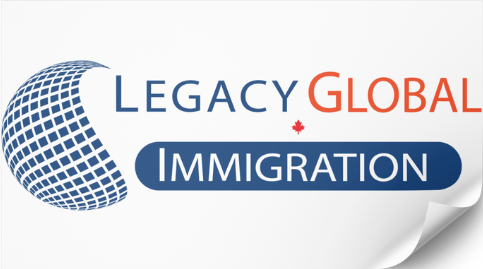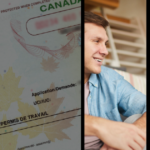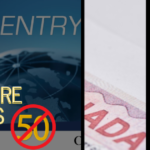SOWP (Spousal Open Work Permit) – Eligibility Requirements Updated as of March 19, 2024
Immigration, Refugees, and Citizenship Canada (IRCC) has unveiled further details regarding adjustments to the eligibility criteria for Spousal Open Work Permits (SOWPs).
Effective January 22, 2024, IRCC introduced several changes to Canada’s international student program. Notably, it stated that the spouses of international students enrolled in undergraduate and college programs will no longer be eligible for SOWPs.
Starting March 19, partners and spouses of international students may apply for a SOWP only if their sponsor is enrolled in a master’s or doctoral degree program at a university or polytechnic institution in Canada. There are certain exemptions for the spouses or partners of undergraduate students. Spouses of undergraduate students enrolled in specific professional degree programs at a university are also qualified to submit an application for a SOWP:
- Doctor of Dental Surgery (DDS, DMD)
- Bachelor of Law or Juris Doctor (LLB, JD, BCL)
- Doctor of Medicine (MD)
- Doctor of Optometry (OD)
- Pharmacy (PharmD, BS, BSc, BPharm)
- Doctor of Veterinary Medicine (DVM)
- Bachelor of Science in Nursing (BScN, BSN, BNSc)
- Bachelor of Education (B. Ed.)
- Bachelor of Engineering (B. Eng., BE, BASc)
Spouses and partners seeking an SOWP must furnish documents demonstrating their relationship to the student and one document confirming their partner’s enrollment in a degree-granting program of study. IRCC accepts:
- a valid Letter of Acceptance (LOA) from a Designated Learning Institution (DLI)
- a proof of enrolment letter from their spouse or partner’s DLI
- transcripts from their spouse or partner’s current program
What if you have already submitted SOWP before March 19, 2024?
Your partner or common-law companion could qualify for an open work permit if you satisfy the following three conditions:
- You have a valid study permit.
- You’re eligible for a post-graduation work permit (PGWP).
- You’re a full-time student at one of these types of schools:
- a public post-secondary school, such as a college or university, or CEGEP in Quebec
- a private college-level school in Quebec
- a Canadian private school that can legally award degrees under provincial law (for example, a bachelor’s, master’s or doctoral degree)
What If your spouse or common-law partner is applying to extend their existing open work permit under this stream?
Your spouse or common-law partner may be eligible to extend their existing open work permit under this stream if you meet 3 requirements:
- You have a valid study permit.
- You’re eligible for a PGWP.
- You’re a full-time student at one of these types of schools:
- a public post-secondary school, such as a college or university, or a CEGEP in Quebec
- a private college-level school in Quebec
- a Canadian private school that can legally award degrees under provincial law (for example, a bachelor’s, master’s or doctoral degree)
Options if you are not eligible for the SOWP!
Partners and companions of international students who discover they no longer meet the criteria for a SOWP have the option to apply for an alternative type of work permit or a Temporary Resident Visa (TRV). However, individuals arriving in Canada as visitors are not authorized to engage in employment. An SOWP enables holders to work for nearly any employer in Canada. It also serves as a mechanism to further IRCC’s objective of fostering family reunification.
Nonetheless, during a statement made to the Standing Committee on Citizenship and Immigration (CIMM) on February 28, Immigration Minister Marc Miller explained that he was restricting SOWPs to the partners and spouses of master’s and PhD students in order to address both a volume issue and integrity concerns regarding what they perceived as an area vulnerable to exploitation and potentially lacking legitimacy.







